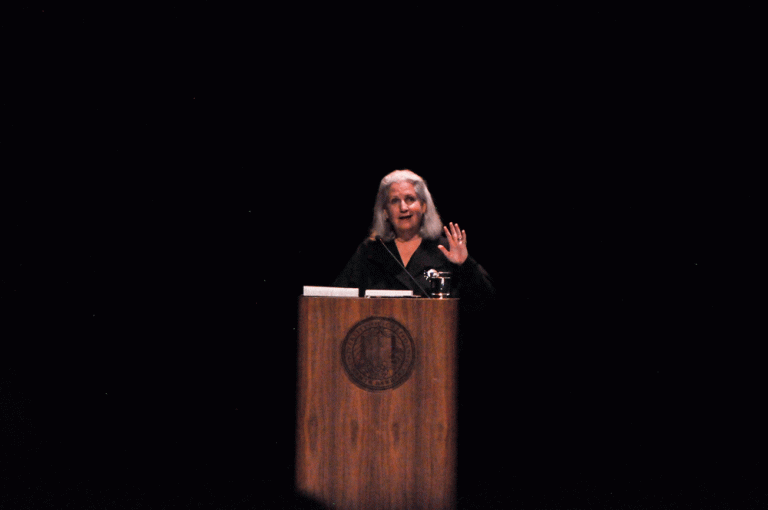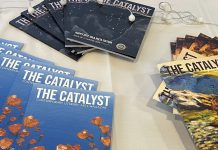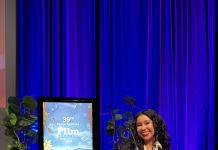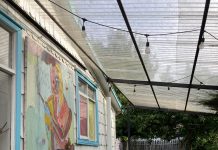
Emma McKay
Terry Tempest Williams, activist, author, and environmentalist, spoke Apr. 12 at Campbell Hall in the final lecture of The National Parks Series put on by UCSB Arts & Lectures.
Williams discussed her new book “The Hour of Land: A Personal Topography of America’s National Parks”, recalling some of her personal memories within the parks.
Williams has had a topographic experience with the beautiful lands of the United States. She began the lecture recalling the moment she became an environmentalist. It was 1969 and Williams, age 14, witnessed the aftermath of the Santa Barbara Oil Spill. Excited to return to Santa Barbara for the presentation, she said, “this was where I had my first a-ha moment of conservation, as a young girl watching the coastal birds with my grandmother.”
The image of birds coated in oil after the Union Oil leak in the winter of 1969 has haunted William’s memory ever since.
She saw the damage that human activity had caused, realizing that it is Americans’ responsibility to protect the land.
This led her to a successful life as a conservationist, receiving awards such as the Sierra Club’s “prestigious John Muir Award for distinguished leadership in American conservation.” Her book, “The Hour of Land: A Personal Topography of America’s National Parks,” was published in honor of the National Park Service centennial in 2016. The book seeks to answer the question “what is the relevance of our National Parks in the twenty-first-century?” Williams said. To her, society is now in a fight to protect the National Parks, the “open space of democracy.” Today, national parks are threatened by the search for resources, specifically energy in the forms of oil, natural gas, and coal.
In regard to the film series “The National Parks: America’s Best Idea,” also presented in relation to the lecture series, Williams said that the national parks are not the best idea, but “our evolving idea.” The national parks have been an ongoing project since President Lincoln signed Yosemite Valley over to the state of California in 1864. Now, in California alone, there are 28 parks.
Today, people are at a crossroads, having “arrived at the hour of land,” Williams said. She says that people “must include all species,” and when people learn to listen to the land people can learn to listen to each other. She also mentioned that each person sees this country’s parks differently, and each one of the unique landscapes is a different place to everyone.
Similar to the ideas of Aldo Leopold and John Muir, Williams brings up the notion that parks are a reminder that humans are not the only species that live and love on this land. In reference to when Johnson signed the Wilderness Act in 1964, Williams said that “these lands remain to show us what life was like before we interfered.”
Williams recalled being in Lamar Valley, part of Yellowstone National Park, where she and some companions witnessed Bison mourning the death of a mother. A ranger had told them the mother was giving birth to a stillborn baby when a wolf came and killed her. Williams witnessed the predators and scavengers of the park feeding from the carcass, part of the natural cycle. However, later that day, they watched as a nearby group of bison walked single file towards the body, circled around her a few times, bowed down their head, and then left in the same organized line. One lone bison stayed for a while after the others, standing in silence near the passed mother. In this moment, Williams said, they had witnessed the love and grieving that exists within other species.
By acknowledging societal mistakes, people are slowly learning what it means to act responsibly. Although the junior Oxford dictionary has deleted many “nature words” like pelican and biome, instead including “technology words” like blog and upload, the National Parks are still outreaching to kids, getting them involved in the outdoors. Williams spoke specifically on the success of the junior ranger program, as she herself wept when she passed the exam.
Williams provided a strong conclusion to The National Parks Series, guiding the audience to think about national parks from the perspective of time as “our evolving idea.”








I wish I could have made it to this lecture!
Comments are closed.